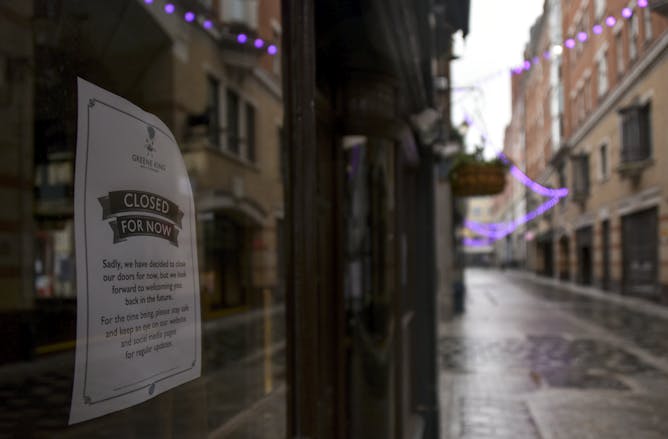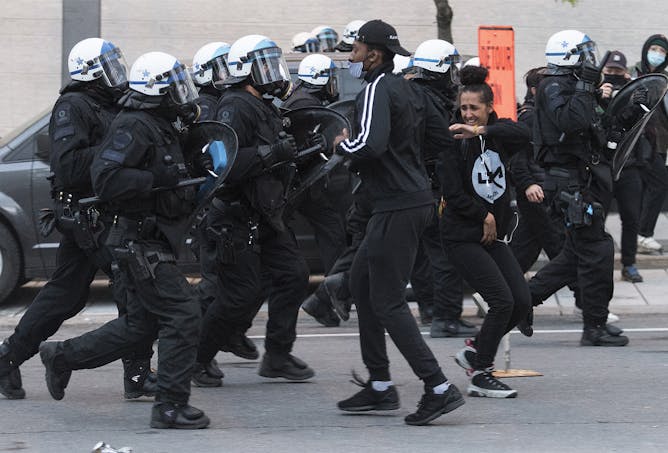|
We all remember the eerie scenes of formerly bustling cities suddenly empty of people and activity in the early days of the COVID-19 pandemic.
The images were frightening, caused us to make weird choices — like hoarding toilet paper and flour — and created anxiety about what might be lurking on the horizon.
Today in The Conversation Canada, strategic management professors Sofiane Baba of the University of Sherbrooke and Taïeb Hafsi of HEC Montréal look back at worldwide lockdowns with a focus on strategic and decision-making processes. They explain how fear can be a powerful driver, and governments often base decisions on the anxiety levels of their citizens. But that doesn’t often result in the most logical or sensible courses of action and can lead to over-reaction.
They write: “Faced with uncertainty, pressure from the media and frightened populations, national leaders sometimes follow each other’s lead, cementing an over-reaction and taking more action — sometimes questionable — to justify and enforce their decisions.”
Also today:
All the best.
|

A closed pub in Soho, London, in February 2021, during the third national lockdown in the United Kingdom due to COVID-19.
(AP Photo/Alberto Pezzali)
Sofiane Baba, Université de Sherbrooke ; Taïeb Hafsi, HEC Montréal
Initial responses to threats — whether they’re military, strategic or health-related — are crucial to the peace and prosperity of nations. Did governments go too far with COVID-19 lockdowns?
|

Meat has been a marker of class and gender divides and has sparked scientific revolutions.
Shutterstock
Zeynep Arsel, Concordia University; Aya Aboelenien, HEC Montréal
Meat has been a marker of class and gender divides, sparked scientific revolutions and has been at the centre of wars.
|

Police push back protesters during a demonstration in Montréal calling for justice for victims of police brutality.
THE CANADIAN PRESS/Graham Hughes
Kevin Walby, University of Winnipeg
The large budgets allotted for urban policing must be reconsidered so that communities can explore safer alternatives.
|

Integrating cannabis consumption into tourism will improve the normalization, acceptance and tolerance of cannabis in Canada and abroad.
(iStock)
Susan Dupej, University of Guelph
Canada is in a position to be a global leader in setting an international precedent for socially responsible and informed policy for cannabis.
|
Arts
|
-
Keith Parry, Bournemouth University
Record attendance of professional women’s matches show support is higher than at any time in history.
|
|
Environment + Energy
|
-
Tim Newbold, UCL; Charlie Outhwaite, UCL
Insect numbers and species decline steeply where agriculture and habitat loss coincide. Preserving natural habitat can reduce losses up to nine-fold
|
|
Health
|
-
Brittany Larsen, Iowa State University
Research has been inconclusive on the degree to which drinking alcohol leads to the growth of harmful fat. But a new study suggests that beer and spirits are far bigger culprits than wine.
|
|